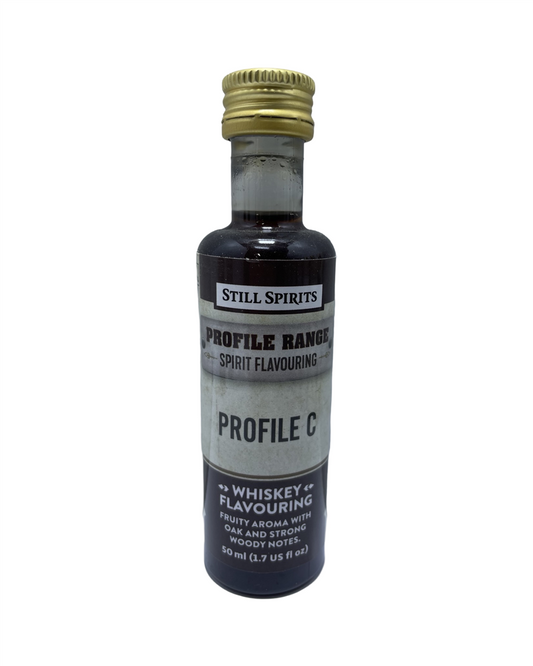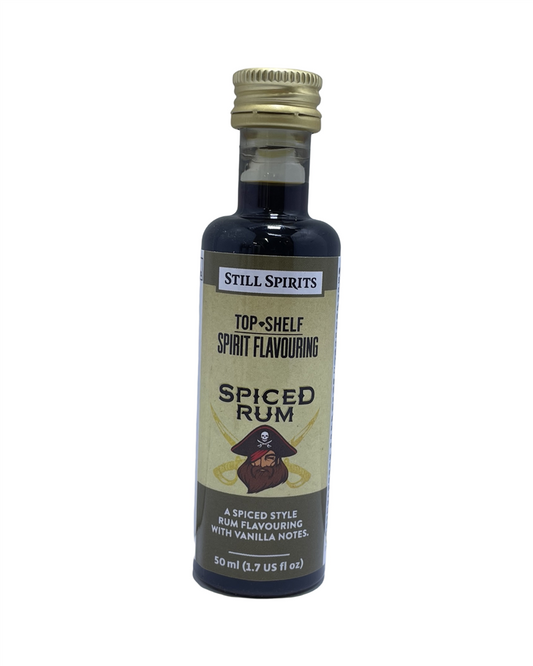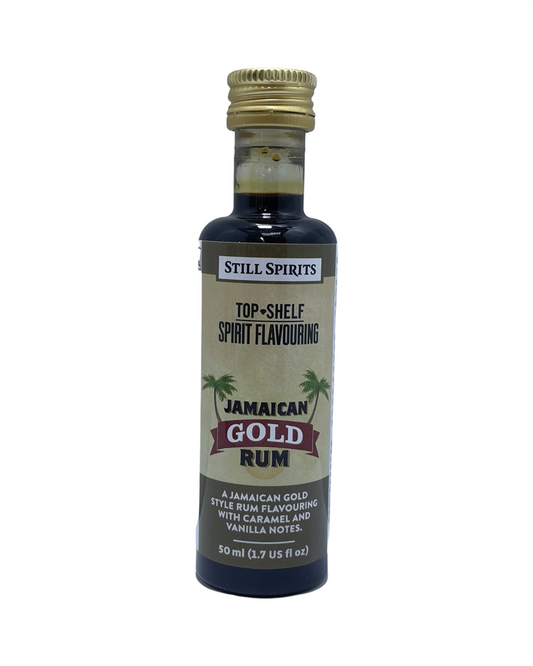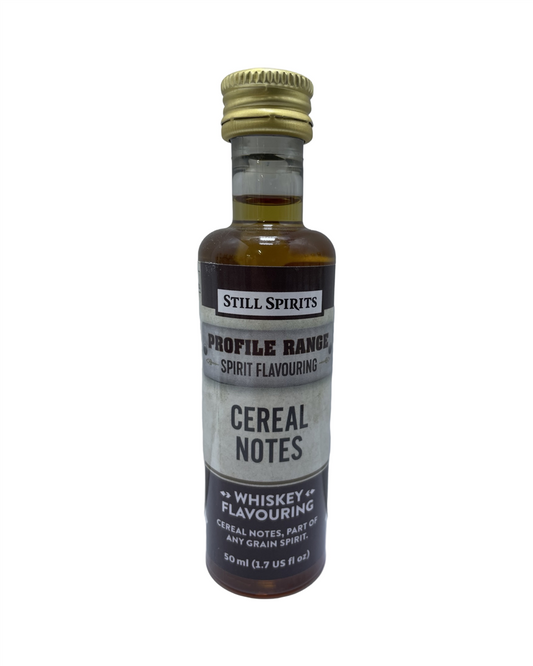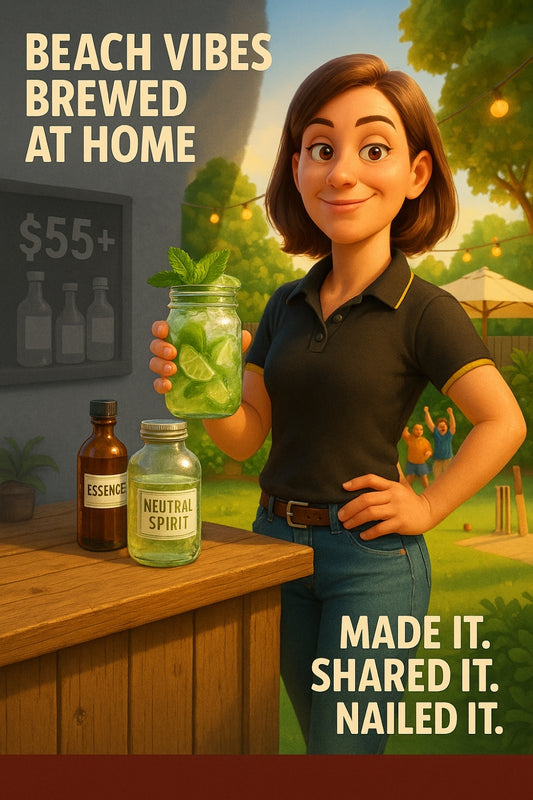
From hobbyist to homebrewer: How to make beer that tastes professional
Share
From Hobbyist to Homebrewer: How to Make Beer That Tastes Professional
Brewing your own beer is a bit like learning to cook. At first, you follow the recipe to the letter, nervously checking every step. Then, once you've got a few batches under your belt, you start to play around—tweaking flavours, adjusting temperatures, maybe even giving your brew a fancy name. The dream? A beer so good that your mates start asking when they can put in an order. The good news is, getting that professional taste isn't as tricky as you might think.
Start with Quality Ingredients
Great beer begins with great ingredients. If you’re grabbing the cheapest malt and hops you can find, your brew will taste… well, cheap. Look for premium malts, fresh hops, and quality yeast. If your hops smell stale or your malt looks dull, chuck it. Freshness makes a world of difference.
Water is another big one. If your tap water has a strong chlorine smell or mineral taste, consider using filtered or spring water. Professional breweries adjust their water profiles to suit different beer styles, and while you don’t need to get that technical straight away, clean, balanced water is key.
Dial in Your Fermentation
Fermentation is where magic happens, and it’s also where most homebrewers go wrong. If you're leaving your fermenter in the garage where temperatures swing wildly, your yeast is throwing a tantrum. A consistent temperature will keep things under control and result in cleaner, smoother flavours.
A basic temperature-controlled fridge or a cooling jacket can make a huge difference. Even if you can’t go that far, keeping your fermenter in a stable environment—away from sunlight and sudden temperature changes—will help you avoid funky off-flavours.
Sanitation Is Non-Negotiable
Ever poured your heart into brewing a batch only to be met with a weird sour taste or a strange film on top? Contamination is the enemy of good beer. Anything that touches your brew after the boil—your fermenter, siphon, bottles—must be properly sanitised.
Use a no-rinse sanitiser and be thorough with your cleaning. The pros don’t take risks with sanitation, and neither should you.
Control Your Carbonation
Over-carbed, under-carbed, flat-out inconsistent—carbonation can make or break your beer. If you’re bottling, make sure you’re measuring your priming sugar correctly and distributing it evenly. If you’re kegging, dial in the right CO₂ pressure for your beer style.
Too much carbonation? Your beer turns into a foam volcano when opened. Too little? It falls flat. Getting it right will give your brew that crisp, professional finish.
Give Your Beer Time
A rushed beer is a bad beer. Yeast needs time to clean up after itself, and flavours need time to meld. If you’re cracking open bottles just a week after bottling, you’re missing out on a more refined drink. A little patience can smooth out harsh edges, round out flavours, and improve clarity.
If you have the space, consider cold conditioning (also called lagering). Even ales benefit from a bit of extra time in a chilled spot after fermentation is complete. It’s the secret behind that polished, professional taste.
Experiment and Take Notes
Every great brewer keeps a journal. Whether it’s a fancy app or a good old notebook, jot down the details—malt quantities, hop additions, fermentation temperatures, tasting notes. If your latest batch is a winner, you’ll want to recreate it. If it flops, your notes will tell you why.
Try different yeast strains, adjust your water chemistry, or play with hop varieties. Small tweaks can take your beer from "pretty good" to "where have you been all my life?"
Share and Learn from Others
There’s something special about sharing a homebrew and watching someone’s face light up after the first sip. Join a homebrew club, swap bottles with fellow brewers, or ask for feedback. A fresh set of taste buds can point out nuances you might miss.
And don’t hesitate to learn from those who’ve been at it longer than you. Whether it’s a friendly chat with someone at your local homebrewing supply store or reading up on techniques, learning from others will only make your beer better.
Time to Brew Like a Pro
Homebrewing isn’t just about making beer. It’s about the pride that comes from creating something yourself, the joy of watching friends enjoy what you’ve crafted, and the never-ending journey of improving your skills. With the right ingredients, careful fermentation, and attention to detail, there’s no reason your next batch can’t taste like it came from a professional brewery.
So, what’s your next brew going to be? 🍻

Stay Connected
Join our homebrewing community: Beer and Barrel Society on Facebook
Follow our Facebook Page: Strathalbyn H Hardware on Facebook


